The Talos Principle 2 is a polarising masterpiece
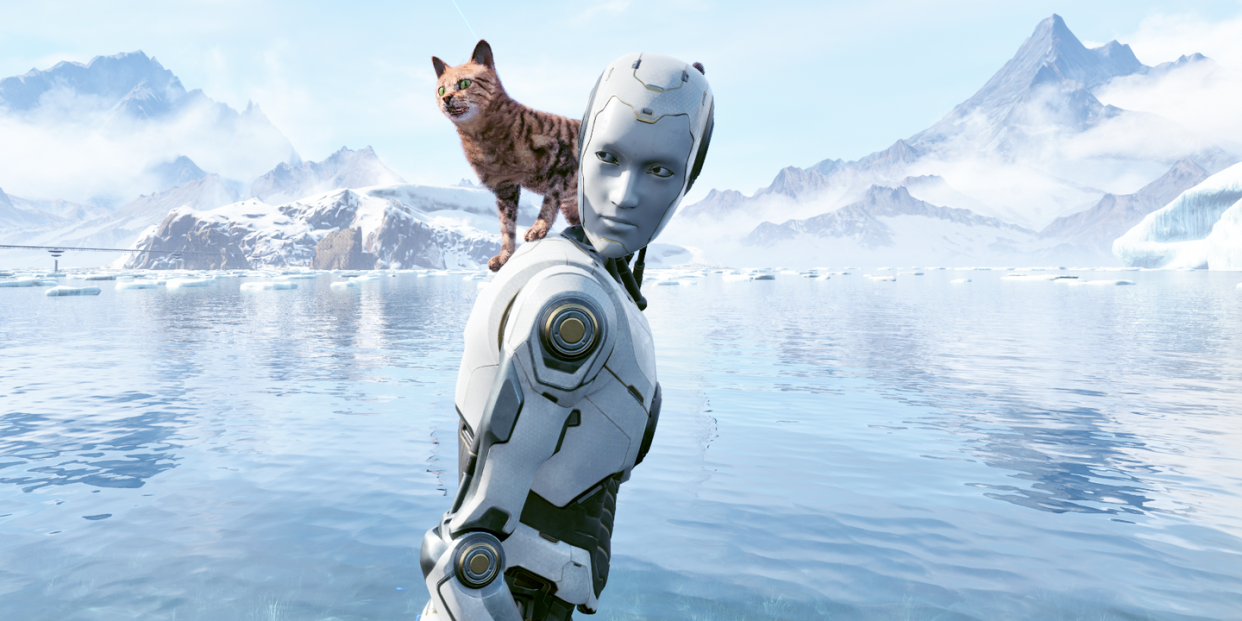
As I'm installing The Talos Principle 2 into my Steam library, the playtime of the original game catches my eye: 300 hours. That's almost two weeks' worth of solving puzzles, hunting secrets, playing the Road to Gehenna DLC, completing community created maps and finding new ways to do it all over again.
It's safe to say that The Talos Principle not only became one of my favourite puzzle games of all time, but one of my favourite games in general. What was it that drew me to it like other games rarely have? Was it the puzzles? The secrets? The exploration? It's more like a perfect storm of all three combined with its contemplative worldbuilding and creative approach to design.
Now, nine years later, I'm about to play a game that's been in the back of my mind for almost a decade. A game that I've had dreams about and considered all the possible directions it could go after the original ended and we left the simulation for the first time.
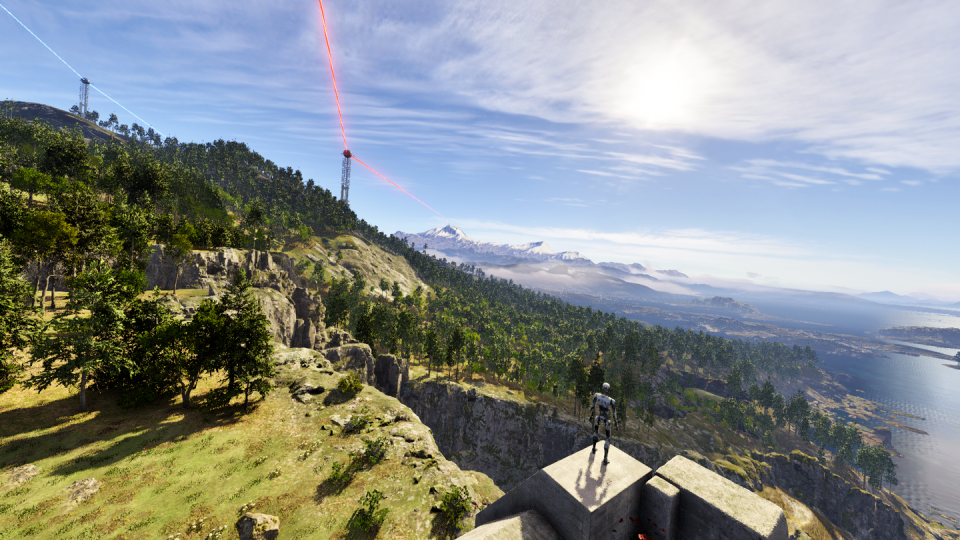
It's fitting then that The Talos Principle 2 starts you in a dream. We wake up to the familiar sound of music from the first game, our robot hand blocking out the sun as we stare into the sky, and the God-like voice of Elohim echoing from above – one of our only sources of contact in the first game – now sounding more like an old friend that brings us solace.
It's mirroring the first game in every way, including those feelings of solitude we felt, but something's not quite right, and it's not long until we see why. The Talos Principle 2 abruptly gives us whiplash and the comforting familiarity we know is abandoned when we wake up in the real world as '1K', the 1,000th member of a fully-formed robot society.
Within minutes, we're seeing story-driven cutscenes with a host of different characters, meeting multiple robots, and making choices that affect the story – a far cry from the quiet simulation where we often only communicated via computer terminals.
It's very clear from this point that Talos 2 is a much different game than the first. Its focus on narrative is apparent. We're now part of a developing community called New Jerusalem and before we even start doing puzzles, we can roam the town to meet the citizens, engage in political and social conversations, contribute to meetings, visit its museums and find out what happened since the first robot left the simulation over a millennium ago. Those interested in the lore have a wealth of information to uncover, and it's definitely worth it for long-time fans.
For those who only want to do puzzles, the good news is you can skip entering the city outside of one section later in the game, so you can head out to test your brain if you wish.
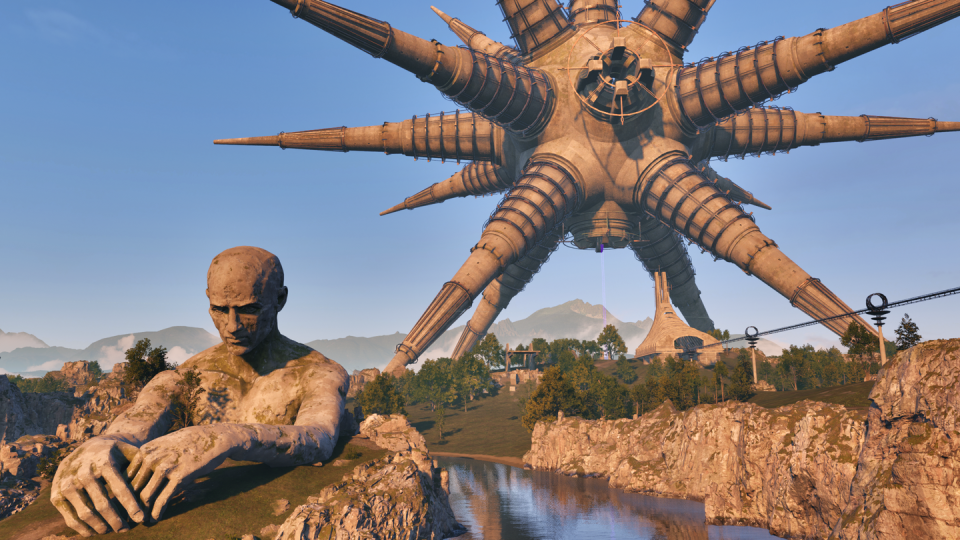
Related: The Cosmic Wheel Sisterhood is one of the most bewitching games of the year
Before I talk about the puzzles, I have to talk about the setting itself. The key difference from the first game is that it now takes place in the real world as opposed to the simulation we experienced in the first game. That in itself leaves questions as to how puzzles exist on a desolate Earth with no biological humans, but I was pleased to see that the game does a great job of answering this, while also asking plenty of more questions of course.
The Talos Principle 2 is ambitious and much bigger in scope, both physically and figuratively. The maps are larger and are beautiful, awe-inspiring vistas filled with impossible architecture and interesting landmarks. They can be breathtaking to explore and it makes each puzzle feel unique, giving each individual room its own personality almost.
There are 12 puzzle regions to explore in total, each containing eight ordinary puzzle rooms, two Lost puzzles (which act as additional rooms you can substitute to reach your completion quota), a Gold puzzle that unlocks after finishing every other puzzle in the game, two Star puzzles, and a bunch of lore landmarks, artefacts and secrets.
The maps are undeniably huge, and could feel like a chore to navigate for those who just want to solve puzzles, but if you're like me and want to explore, discover and soak up every detail, then no game does atmosphere better than The Talos Principle 2.
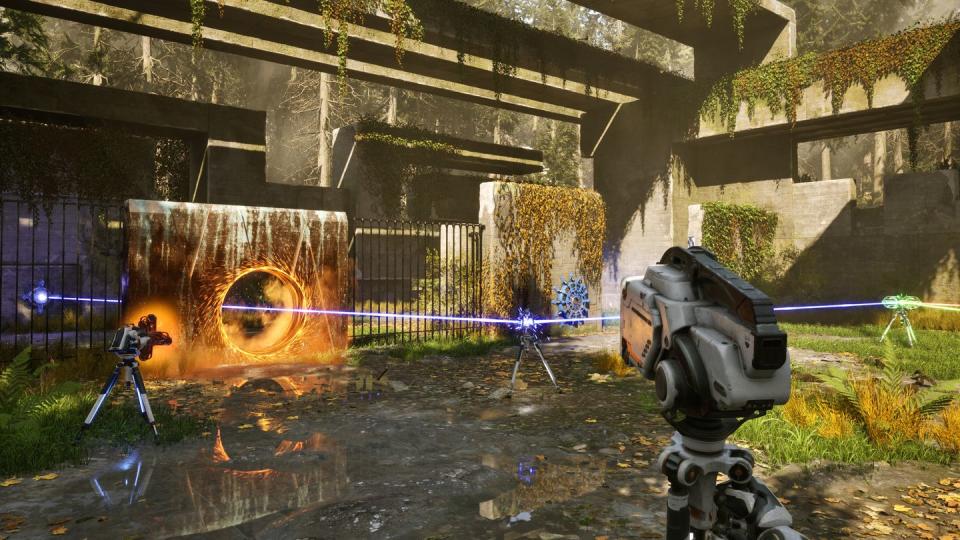
I'm happy to say that the puzzles in Talos 2 are even better than those in the first game. There's a host of new mechanics introduced as you progress that keeps gameplay fresh and innovative, including gravity manipulation, mind transference and a range of new laser tools that feel like a natural progression from its predecessor.
The puzzles also feel more focused and less tedious. Gone are the recorder mechanics and having to avoid bombs with split-second timing, instead being replaced by much better devices that lead to more creative solutions. I also found that the game no longer relies on huge maze-like puzzle rooms that require lots of monotonous steps to solve, instead making much better use of space for more streamlined puzzle design.
Puzzles never feel boring and all 12 hub worlds feel different from each other, not only visually but also with the types of puzzles they introduce. Difficulty will vary from person to person, but for me, some could be solved in 30 seconds and some of the very late-game optional Gold puzzles could take as long as an hour. Where Talos 1 felt like a constant escalation in difficulty as you played, Talos 2 is a lot more varied with high and low difficulty thresholds all the way through, resulting in a better-paced experience.
The Talos Principle 2 is undoubtedly more approachable than the first game. You don't have to beat every puzzle in a hub world to move on; you can choose any eight of the ten puzzle rooms to complete the area. You can also use Prometheus Tokens found in the world to bypass puzzles if you're really stuck, with the option to come back later and approach them with a fresh set of eyes and newly learned tricks.
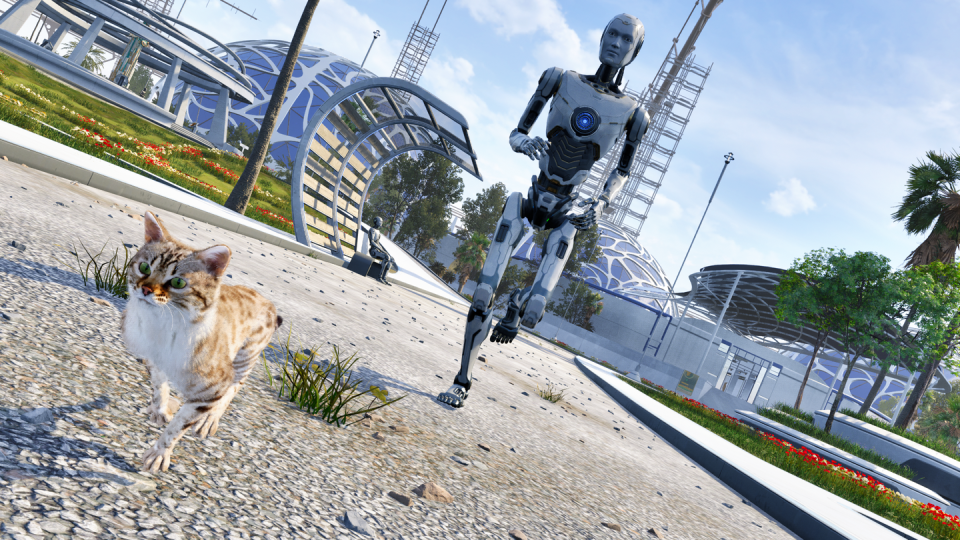
Related: The best games of 2023 so far
One of the best parts of the first Talos Principle was the Star puzzles, a series of puzzles that required players to think outside the box and helped to unlock the meta-game of solving puzzles with alternate solutions. They often required you to 'break the game' by bringing items outside of puzzle rooms, creating a network of lasers across the level, and finding other unconventional methods of obtaining those elusive stars.
I was surprised and apprehensive when I saw that Star puzzles were different in the sequel. In Talos 2, stars are no longer floating in impossible to reach locations. Instead they are tied to Monuments, which are essentially statues of Prometheus, Sphinx and Pandora that require a specific solution to spawn the star.
Prometheus statues require you to find and chase a blue spark across the map, Sphinx statues show a hint that leads to a unique puzzle in the world somewhere, while the Pandora Monuments are the most similar to what we loved in the first game, environmental puzzles that require items from multiple puzzle rooms to chain lasers together and unlock the star.
Long-time fans may be disappointed that there aren't more of the environmental Star puzzles, especially when the alternative is chasing a spark or trying to find a switch like a needle in a haystack. The environmental puzzles they do have are memorable and full of "aha!" moments, but it's definitely a different approach to Star puzzles, and I'd selfishly love to have seen it pushed further.
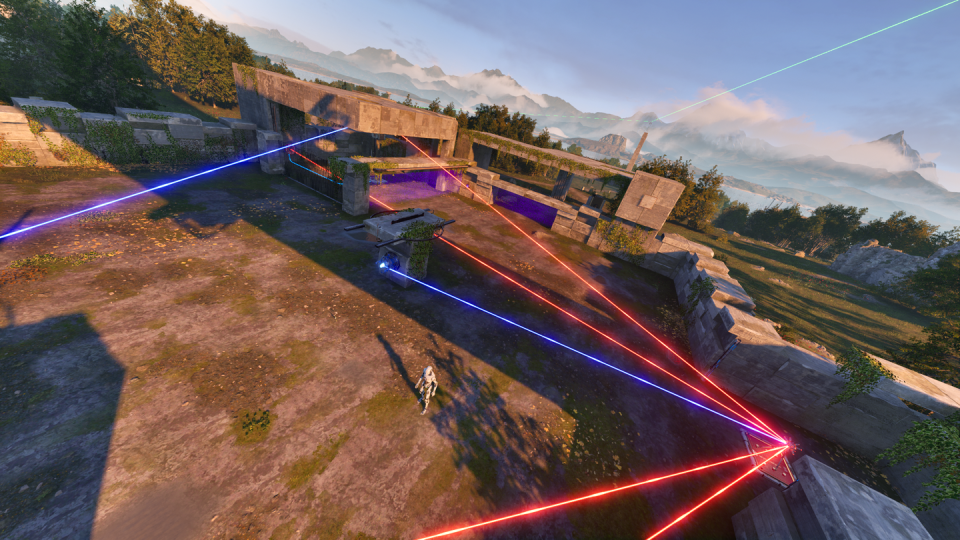
I want to talk about a really important aspect of The Talos Principle that could easily be missed and underutilised by someone who hasn't played the series, and that's the meta-game. I touched on this earlier when discussing Star puzzles, but to me, this is what makes Talos special. It's the ability to solve puzzles in creative ways that aren't considered 'intended solutions'. Sure, you can enter the puzzle room, use the tools allotted to you, solve it and leave as expected – or you could do none of that and still clear the puzzle.
Finding ways to bring items out of and into puzzle rooms, strategically placing items in the world to aid a solution, or simply using parkour and the map geometry to your advantage to climb over walls or reach locations originally thought impossible – the possibilities are endless and can be even more rewarding than solving it the 'correct' way.
There's an entire community of players who experiment like this, and I have experimented a lot in my time with the game too, from bringing items out of multiple rooms in every map to skipping puzzles entirely through some rigorous platforming – which can sometimes take longer than solving it as intended, but where's the fun in that? No other first-person puzzle game gives you this freedom and sense of accomplishment, as if you've outsmarted the game in some way.
The truth is, breaking the game is intended. The developers don't discourage this way of playing the game and welcome it. I'm super happy to see this hasn't been toned down in the sequel, and if anything, it's now even more fun with all of the new puzzle mechanics and monolithic maps.
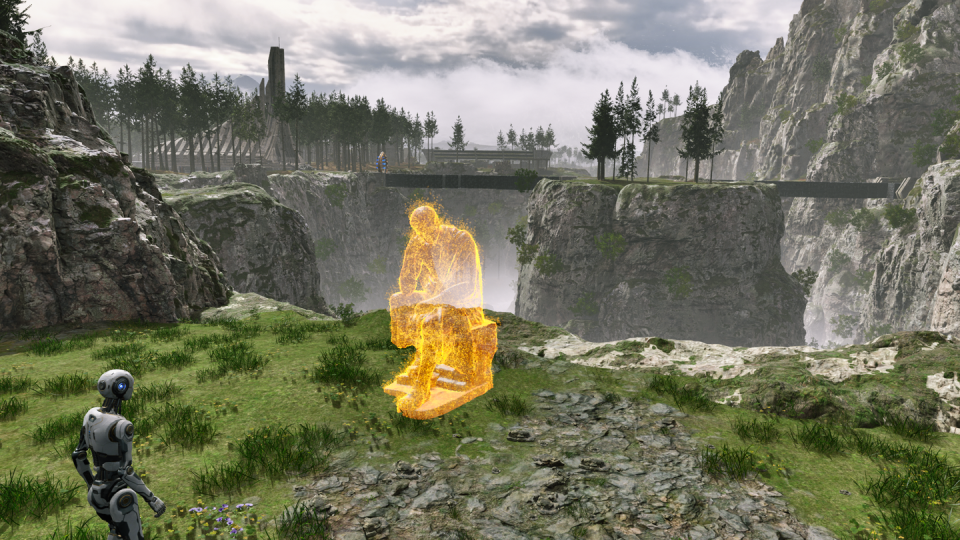
Related: RoboCop: Rogue City is a treat for fans
The Talos Principle 2 will divide fans of the original who yearn for that feeling of contemplative loneliness we felt in the simulation. Where Talos 1 was a puzzle-driven game with story elements, Talos 2 can feel more like a story-driven game with puzzle elements. This sounds like a wild statement to make when you consider it has more puzzle rooms in total, but the amount of interactions with other characters and collectibles contribute to this.
You can have face-to-face conversations with your team of expeditionists who will also call you, comment on your discoveries, and sometimes speak to you after solving puzzles. There are four different types of audio logs to find and listen to, a social media menu where you can reply to posts, and terminals to read. Even for the most lore-hungry player, at times it can feel like a lot, especially when the topics are largely philosophical and heavy in nature.
Of course, most of the narrative-driven content is optional and entirely skippable. Outside of your team calling you or pushing the story forward after each area, you can essentially leave your poor robot friends to rust as you go off to find secrets and solve puzzles in its stunning locations.
The beauty does come at a cost though. Croteam has moved from their in-house engine to Unreal Engine 5, which graphically makes the game gorgeous, but in turn makes it a very demanding game that older machines may struggle to run optimally. My mid-range PC ran the game smoothly on native medium settings and high textures, with a few instances of stutter on map transitions and no other issues.
There are upsampling options and there is a PC demo available to test performance if you're unsure. The game is also available on console which I didn't get a chance to test for this review.
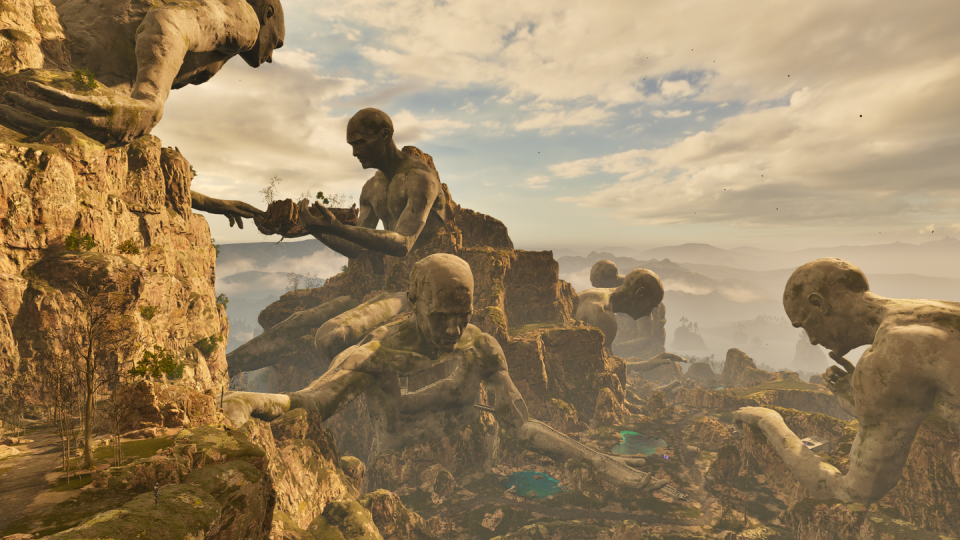
I've not discussed too much of the story for spoiler purposes, but it's a big part of the game that will polarise fans of the more quiet and intimate first game. Those moments of introspection are definitely there in some capacity, and although I was caught off guard initially, I'm pleased to say that by the end I understood why this had to be the sequel. Where Talos 1 asked us what it is to be human, Talos 2 asks what it is to be a society.
More of the same wouldn't have pushed the series forward, and after seeing the game's many endings, I can say I was satisfied and impressed with the various conclusions.
I can't wrap up this review without highlighting the masterful soundtrack from Croteam composer Damjan Mravunac. The haunting and reflective music that guides you through the game is perfect, and is just as important as the puzzles and story in cementing The Talos Principle 2 as one of the very best in the first-person puzzle genre. It's simply transcendent and enough to be the soundtrack to my dreams for another nine years, or however long a possible third game takes to make.
The Talos Principle 2 builds on the genius puzzle design of the first game in innovative ways that makes it another masterpiece in the genre. Even with a more story-driven focus, there's nothing else quite like experiencing every mystery its sublime world has to offer.
Even after completing every puzzle, collecting every star, and seeing numerous endings, I can't wait to go back and do it all again to uncover all of its secrets – and when I've seen them all, I'll still be trying to solve the puzzles again in creative and unintended ways.

Platform reviewed on: PC
The Talos Principle 2 is out now on PlayStation 5, Xbox Series X|S and PC.
You Might Also Like


